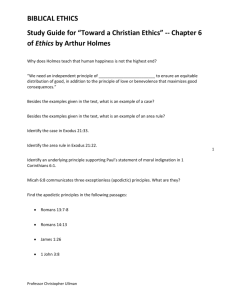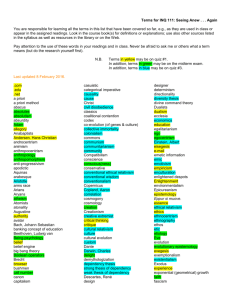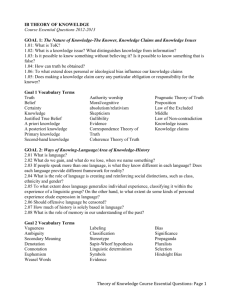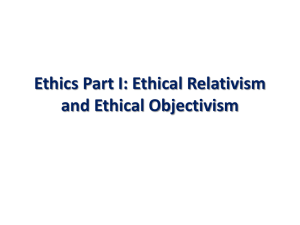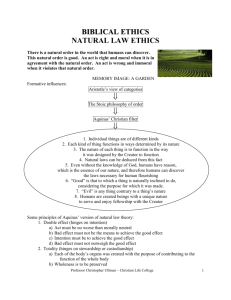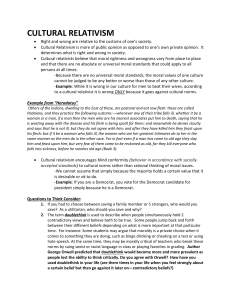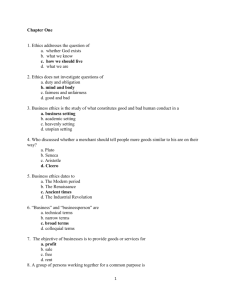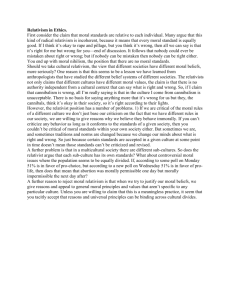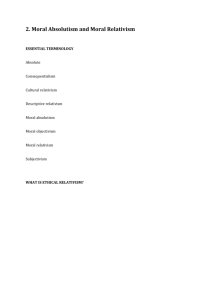thought questions on emotivist ethics
advertisement
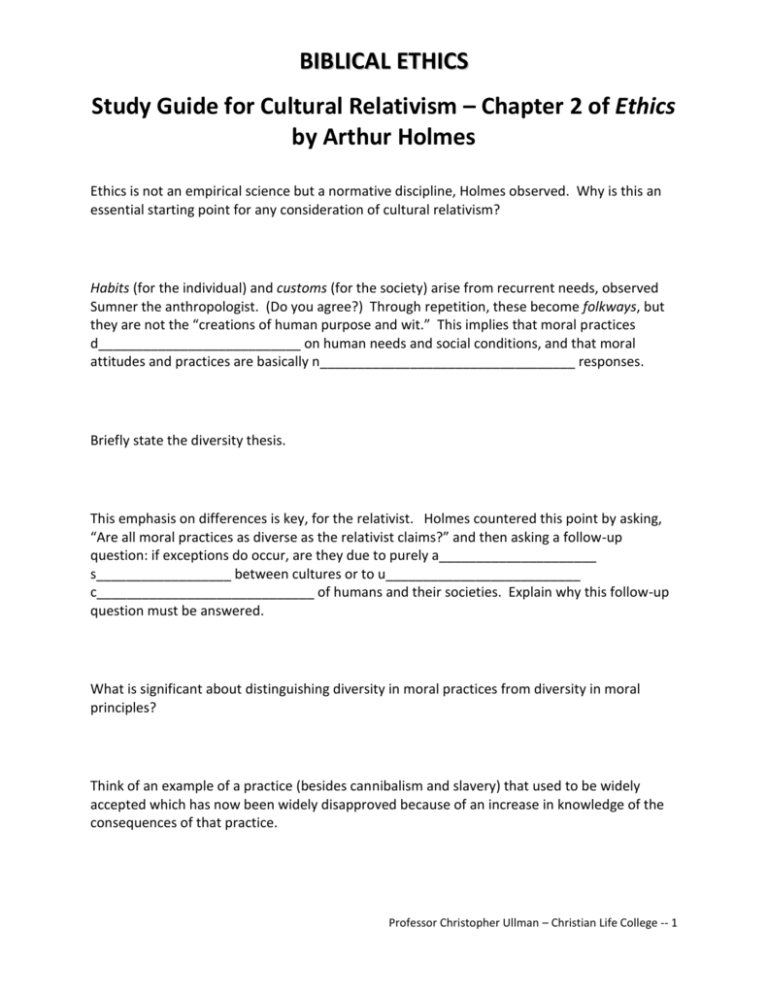
BIBLICAL ETHICS Study Guide for Cultural Relativism – Chapter 2 of Ethics by Arthur Holmes Ethics is not an empirical science but a normative discipline, Holmes observed. Why is this an essential starting point for any consideration of cultural relativism? Habits (for the individual) and customs (for the society) arise from recurrent needs, observed Sumner the anthropologist. (Do you agree?) Through repetition, these become folkways, but they are not the “creations of human purpose and wit.” This implies that moral practices d___________________________ on human needs and social conditions, and that moral attitudes and practices are basically n__________________________________ responses. Briefly state the diversity thesis. This emphasis on differences is key, for the relativist. Holmes countered this point by asking, “Are all moral practices as diverse as the relativist claims?” and then asking a follow-up question: if exceptions do occur, are they due to purely a_____________________ s__________________ between cultures or to u__________________________ c_____________________________ of humans and their societies. Explain why this follow-up question must be answered. What is significant about distinguishing diversity in moral practices from diversity in moral principles? Think of an example of a practice (besides cannibalism and slavery) that used to be widely accepted which has now been widely disapproved because of an increase in knowledge of the consequences of that practice. Professor Christopher Ullman – Christian Life College -- 1 BIBLICAL ETHICS How is relativism impractical when cultures conflict, such as was the case with the Nazi Holocaust? What does the term moral court of appeal have to do with all this? Holmes concludes that the diversity thesis badly overstates the v____________________ and the e_____________________________ of ethical relativity. Briefly state the dependency thesis. What does the dependency thesis imply about the human freedom to choose? Holmes seems very concerned that cultural relativists must not dismiss the question of truth in ethics. Why? What will not occur, if “all moral beliefs are completely dependent on cultural conditions?” What is the ethnocentrism accusation against non-relativists? Relativism or ethnocentrism are not the only two options available; one can defend u________________________ m_____________ n_____________ without defending one’s own culture. Professor Christopher Ullman – Christian Life College -- 2 BIBLICAL ETHICS Concerning tolerance, what dilemmas does the relativist face? Ethical relativism is not new. Protagoras (490-420 B.C.) declared that “____________________is the ___________________ of all things.” Hobbes (1588-1679) taught that human self-interest is so basic and brutal that we must create and submit to the absolute authority of a ruler (Leviathan), so morality depends on a combination of p___________________ and s__________________ causes. Holmes said a response to relativism must not claim that all moral beliefs are held ______________________________. What is the normative view that he does defend? Professor Christopher Ullman – Christian Life College -- 3 BIBLICAL ETHICS Professor Christopher Ullman – Christian Life College -- 4
